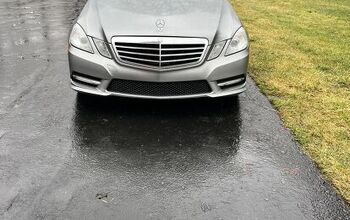Question Of The Day: When Financing A Car, What Information Should Be Fair Game?
Your personal information is valuable.
When I liquidated vehicles for Capital One, we typically examined over 14,000 variables before lending out our money to a customer.
Any customer. A credit card. An automobile. A commercial loan. It didn’t matter. We needed to get to know the economics of you first.
All of the low rates and big profits were dependent on buying your personal information, and then crafting decision models and metrics to determine your personal risk.
Our success in auto finance generated low rates for our customers and low delinquencies for our investors. But they both could have been far lower.
There is a line of demarcation between what is private, and what is public.
Your payment history? Public for the most part. There are those landlords, small money lenders and car lots that don’t report your credit history. But most utilities, credit cards, mortgage companies, and auto finance companies do so on a regular basis.
It’s a trade. You get money. They get the opportunity for a profit. Along with the right to buy and sell the resources needed to make sound future decisions.
Even the low tech version of a customer’s credit history work fairly well. Pay stubs, utility bills, bank statements, references, and recent housing information are typically used by car dealers to determine your eligibility.
So are criminal histories. In certain areas of this country you can type in a person’s name , state of residence, and the word “mugshot” or “arrested”. Or even access a state information database that records prison histories.
Lo and behold, you may see a familiar face staring right back at you.
All of these things are publicly available. But what about a few of the private things? Should they be fair game too?
If you were financing a car to a complete stranger, wouldn’t you want to know their recent accident history? Or the number of times over the last few years that their insurance was dropped due to non-payment of their premium?
I had three customers who wrecked their cars so far this year. Thankfully, they all kept paying on their full coverage insurance with a $500 deductible. That alone made a $13,000 difference to my bottom line.
A credit union that had the means to examine this behavior could make a lot of better decisions for their members.
A lot of insurance companies these days levy their premiums based, in part, on a customer’s age.
I am not convinced if that is always a fair way to measure risk.
That rare young adult who has managed to find a stable good paying job. Or that student who has earned a free ride to school and kept their GPA on the high end. I think they are far more responsible and creditworthy than that fifty year old who has consistently wrecked cars and dropped their insurance.
So where should that line be?
Should certain resources that are now publicly available become private?
Should other things that are only available upon a special request, become just as accessible as your credit report?
It’s a tough question. Ponder it.
More by Steven Lang
Latest Car Reviews
Read moreLatest Product Reviews
Read moreRecent Comments
- Slavuta CX5 hands down. Only trunk space, where RAV4 is better.
- Kwik_Shift_Pro4X Oof 😣 for Tesla.https://www.naturalnews.com/2024-05-03-nhtsa-probes-tesla-recall-over-autopilot-concerns.html
- Slavuta Autonomous cars can be used by terrorists.
- W Conrad I'm not afraid of them, but they aren't needed for everyone or everywhere. Long haul and highway driving sure, but in the city, nope.
- Jalop1991 In a manner similar to PHEV being the correct answer, I declare RPVs to be the correct answer here.We're doing it with certain aircraft; why not with cars on the ground, using hardware and tools like Telsa's "FSD" or GM's "SuperCruise" as the base?Take the local Uber driver out of the car, and put him in a professional centralized environment from where he drives me around. The system and the individual car can have awareness as well as gates, but he's responsible for the driving.Put the tech into my car, and let me buy it as needed. I need someone else to drive me home; hit the button and voila, I've hired a driver for the moment. I don't want to drive 11 hours to my vacation spot; hire the remote pilot for that. When I get there, I have my car and he's still at his normal location, piloting cars for other people.The system would allow for driver rest period, like what's required for truckers, so I might end up with multiple people driving me to the coast. I don't care. And they don't have to be physically with me, therefore they can be way cheaper.Charge taxi-type per-mile rates. For long drives, offer per-trip rates. Offer subscriptions, including miles/hours. Whatever.(And for grins, dress the remote pilots all as Johnnie.)Start this out with big rigs. Take the trucker away from the long haul driving, and let him be there for emergencies and the short haul parts of the trip.And in a manner similar to PHEVs being discredited, I fully expect to be razzed for this brilliant idea (not unlike how Alan Kay wasn't recognized until many many years later for his Dynabook vision).


































Comments
Join the conversation
I'm all for tough lending standards. The harder the better. I use to work in the mortgage industry and I saw plenty of loans that were approved by Fannie Mae (not the mortgage company) to people that had no business owning a home. Fannie Mae gave us money to market to those people. Homeownership for everyone! One classic story is of a couple that got an low rate two-year ARM loan above the purchase price of the home. They took that extra money and paid off student loans. When when the low-rate went away, they stopped making payments for a year and then turned the house back over to the bank. They even went out and bought a new car when it was all done. (Oh, and then had to turn in the car due to not making payments.) I hope those days are long over...
14,000 variables? How does that work?